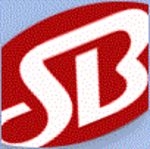Description

Churchsoft

Richmond Software
Comprehensive Overview: Churchsoft vs Richmond Software
As of my last update in October 2023, I don't have specific information on "Churchsoft" or "Richmond Software." They might be niche or emerging companies, or they might not be widely recognized in the tech industry as of my last update. If these companies or products have gained significance after my last training cut-off, I'd recommend checking the latest industry reports, their official websites, or recent news articles for up-to-date information.
However, I can provide a generalized framework on how to approach analyzing software companies like "Churchsoft" and "Richmond Software" based on typical industry considerations:
a) Primary Functions and Target Markets
-
Churchsoft:
- Primary Functions: Typically, church management software (ChMS) solutions like those potentially offered by Churchsoft may include features such as membership management, donation tracking, communication tools, event scheduling, and financial reporting.
- Target Markets: The target market for Churchsoft would likely include religious organizations of various sizes, from small community churches to larger congregations, and potentially other faith-based organizations.
-
Richmond Software:
- Primary Functions: Without specific details, Richmond Software could be involved in a variety of sectors. They might offer specialized software solutions such as accounting software, project management tools, or customer relationship management systems, among others.
- Target Markets: Dependent on their offerings, Richmond Software's target market could range from small to medium-sized enterprises (SMEs) up to large businesses across various industries such as finance, healthcare, or retail.
b) Market Share and User Base
- Market Share: Information on market share typically comes from industry reports by market analysis firms. Market share would depend on the competitiveness and popularity of the software in its respective niche. Newer companies might have smaller shares compared to established firms unless they offer innovative or significantly better solutions.
- User Base: The user base can vary significantly based on the software's performance, features, price point, and customer service. Without direct data, general factors like the number of customers served, geographical reach, and integration capabilities serve as indicators.
c) Key Differentiating Factors
-
Feature Set and Customization:
- Some software is differentiated by unique features or superior customization options that can cater to specific organizational needs.
-
Ease of Use:
- User-friendly interfaces and learning resources are significant selling points. Software that is easier to use typically sees higher adoption rates.
-
Pricing and Scalability:
- Competitive pricing models, including subscription vs. one-time payment options, and the ability to scale with an organization’s growth are crucial differentiators.
-
Integration Capabilities:
- The ease with which different software can integrate with other existing systems often sets products apart. This is particularly important for organizations using multiple software solutions.
-
Customer Support and Community Engagement:
- Quality of support, availability of help forums, and active user communities can be critical for customer satisfaction and retention.
-
Reputation and Brand Trust:
- Established brands with a strong reputation often have a competitive edge due to trust and proven reliability.
For the most current analysis of Churchsoft and Richmond Software’s offerings, consider accessing up-to-date market intelligence reports, conducting surveys within their user communities, or getting testimonials and reviews from current users.
Contact Info

Year founded :
Not Available
+1 864-225-8118
Not Available
United States
Not Available

Year founded :
Not Available
Not Available
Not Available
Not Available
Not Available
Feature Similarity Breakdown: Churchsoft, Richmond Software
As of my latest update, I do not have specific information on products named "Churchsoft" and "Richmond Software." These may be company names or software solutions specific to certain niches, especially if they are relatively obscure or newly introduced to the market. However, I can provide a general framework for how to compare software solutions that may fall under similar categories, such as church management software or other similar domains.
a) Core Features in Common
For church management or any general management software solutions, the following core features are often common:
- Member Management: Tools for managing member information, attendance, and communication.
- Donation Tracking: Functions to manage and record donations, pledges, and financial contributions.
- Event Management: Scheduling and managing events, services, and group meetings.
- Communication Tools: Features for mass communication like emails, newsletters, or notifications.
- Volunteer Management: Tracking volunteer activities, schedules, and roles.
- Reporting and Analytics: Ability to generate reports on various aspects like attendance, financials, and demographics.
- Mobile Access: Mobile apps or responsive design for on-the-go access.
b) User Interface Comparison
Comparing user interfaces typically involves evaluating:
- Design Aesthetics: Look and feel, color schemes, and visual appeal.
- Ease of Use: Intuitiveness, simplicity, and how user-friendly the navigation is.
- Customization: Ability to customize the dashboard and user experience according to user requirements.
- Integration: How well the interface accommodates integration with third-party applications or tools (e.g., accounting software or social media).
- Responsiveness: How well the interface works on different devices and screen sizes.
c) Unique Features
- Churchsoft might offer unique features like advanced sermon management tools, streaming services for remote viewers, or specific denominational integrations (e.g., Catholic, Baptist, etc.).
- Richmond Software might differentiate itself with unique financial management modules, enhanced security features, or localized support for particular regions.
If you are evaluating these products, it would be beneficial to look at their current documentation or user reviews to determine their specific offerings and differences. Additionally, requesting demos or trial versions can give you insight into the user interface and unique functionalities each product might offer.
Features

Not Available

Not Available
Best Fit Use Cases: Churchsoft, Richmond Software
To provide an accurate description of the use cases for Churchsoft and Richmond Software, it's important to base the analysis on general patterns in software adoption for specific industries and business needs. Let's discuss both:
Churchsoft
a) Best Fit for Churchsoft:
-
Religious Organizations: As the name suggests, Churchsoft is likely designed specifically for religious organizations such as churches, mosques, synagogues, and temples. It caters to their unique administrative and community engagement needs.
-
Community Management: It may be ideal for managing community activities, events, and member databases. This includes efficient tracking of donations, scheduling of services and events, and communication with congregants.
-
Non-Profit Management: Beyond churches, other non-profit organizations with similar operational requirements may find Churchsoft useful, particularly those that rely on donations and volunteer management.
-
Event Planning: The tool might also include features that make it suitable for extensive event planning and management, such as weddings, baptisms, or religious festivals.
Richmond Software
b) Best Fit for Richmond Software:
-
Educational Institutions: Richmond Software might focus on administrative and educational needs, making it suitable for schools, colleges, and universities.
-
Corporate Training Firms: Organizations that offer training and professional development could also benefit from Richmond Software, especially if it offers features like learning management systems.
-
Government and Enterprise Sectors: If Richmond Software includes features for managing large-scale projects or operations, it could be suitable for government agencies or large corporations.
-
Project Management and Accounting: The software could cater to comprehensive project management, financial tracking, and efficiency improvement activities in various business settings.
Industry Verticals and Company Sizes
d) Catering to Different Verticals and Sizes:
-
Churchsoft is likely more tailored to small to medium-sized organizations, especially those centered around a community or volunteer base. Its features might be less about scale and more about specific functionality that pertains to religious and community-based activities.
-
Richmond Software could potentially serve a wider range of industry verticals due to its potential capabilities for more generalized operational tasks. Depending on its feature set, it could be scalable from small businesses to larger enterprises, especially if it includes modular solutions to fit different industry needs such as education, corporate functions, and project management.
In summary, Churchsoft is most suited for religious and non-profit organizations for managing community-focused activities, while Richmond Software likely appeals to educational, governmental, or business sectors requiring extensive administrative and operational support.
Pricing

Pricing Not Available

Pricing Not Available
Metrics History
Metrics History
Comparing undefined across companies
Conclusion & Final Verdict: Churchsoft vs Richmond Software
To provide a thorough conclusion and final verdict between Churchsoft and Richmond Software, it's important to consider each product's offerings, respective advantages, and potential drawbacks:
a) Best Overall Value
Product Offering Best Overall Value:
Determining which product offers the best overall value between Churchsoft and Richmond Software will largely depend on the specific needs of the user. Generally, if your priority is comprehensive church management features, streamlined operations, and user-friendliness, Churchsoft might present the best value. Conversely, if your organization prioritizes advanced financial management, data analytics, and detailed reporting, Richmond Software could be the more valuable choice.
b) Pros and Cons of Each Product
Churchsoft:
Pros:
- User-Friendly Interface: Known for being easy to navigate, making it accessible for users with varying levels of tech expertise.
- Comprehensive Features: Offers a wide range of features tailored for church management, including membership management, event planning, and community engagement.
- Cost-Effective: Generally priced to be affordable for small to medium-sized congregations.
Cons:
- Limited Financial Tools: May not provide as extensive financial management tools compared to specialized financial software.
- Customization Limitations: Some users might find customization options limited depending on specific organizational needs.
Richmond Software:
Pros:
- Advanced Financial Management: Offers robust financial features, including budget tracking, donations management, and analytical reporting.
- Data Security: Strong emphasis on security, ensuring sensitive financial information is protected.
- Scalability: Can scale effectively for larger organizations with more complex financial needs.
Cons:
- Steeper Learning Curve: Complexity of features might require more time and training for effective use.
- Higher Cost: Potentially more expensive, which might not be feasible for smaller organizations.
c) Recommendations for Users
-
Assess Organizational Needs: Users should clearly define their organization's requirements. If church management and congregation engagement are primary goals, Churchsoft may be more suitable. Conversely, if meticulous financial tracking and reporting are critical, Richmond Software might be preferable.
-
Budget Consideration: Analyze the budget constraints of the organization. Smaller churches with limited budgets might benefit more from the affordability of Churchsoft, while larger organizations with significant financial activities may find the advantages of Richmond Software worth the investment.
-
Trial Runs: Consider utilizing free trials or demos offered by both software providers. This allows users to evaluate the interface, ease of use, and specific features relevant to their organizational goals.
-
Seek User Feedback: Engage with existing users or look for reviews and testimonials to better understand the real-world application and reliability of each software.
-
Consult Stakeholders: Involve key stakeholders in the decision-making process to ensure that the software chosen aligns with broader organizational goals and needs.
Ultimately, the decision between Churchsoft and Richmond Software should be guided by a thorough understanding of organizational priorities, financial capacity, and specific functional needs.
Add to compare
Add similar companies



